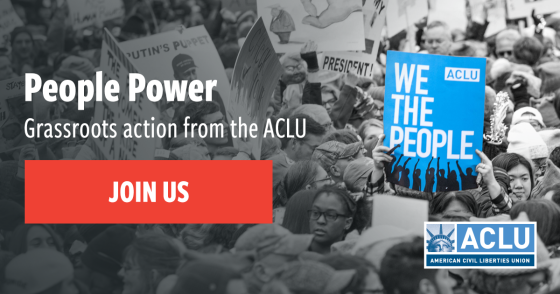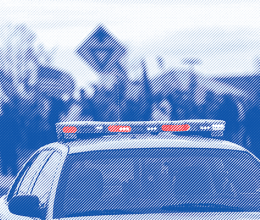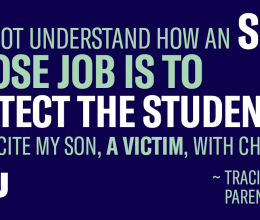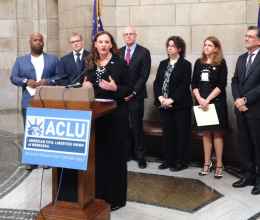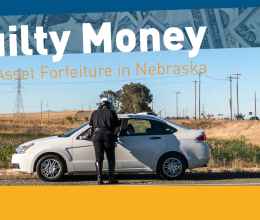
LINCOLN, Neb – Today the ACLU of Nebraska released Guilty Money, a report that documents the impact of Nebraska’s civil asset forfeiture laws. Civil asset forfeiture is a legal mechanism that allows law enforcement to take and keep property it claims is connected to illegal activity without charging the property owner with a crime. In the report, the ACLU looks into the over $16 million seized by Nebraska law enforcement from 2010-2014 through federal asset forfeiture programs.
“The ACLU has an extensive history successfully defending and protecting individual constitutional rights and liberties from unfair government practices,” said ACLU of Nebraska Executive Director Danielle Conrad. "Civil asset forfeiture historically was focused on legitimate public safety purposes of stopping drug kingpins and criminal enterprises. However, as our new report details, we are beginning to see abuses in the system that go beyond legitimate purposes and that risk running afoul of our deeply valued private property and due process rights. Everyday citizens who have never been convicted of a crime are becoming ensnared in this system that is unfairly stacked in favor of the government. Many of the individuals lack the considerable financial resources it takes to fight back and to recover their private property."
The report looks into equitable sharing agreements between the federal government and local law enforcement agencies. Under these agreements, Nebraska law enforcement receives 75-85% of the revenue from property seized from those stopped by Nebraska law enforcement even though the federal government takes care of the legal proceedings. Per capita, Nebraska is the 5th largest recipient of funds from federal sharing agreements. Individuals must fight the federal government and prove that their money was innocent. The government is able to presume the money is guilty.
Four cases of individuals whose property was seized by Nebraska law enforcement are highlighted in the report:
- Mark Brewer: An Air Force veteran who was driving through Nebraska with $63,530 in cash as down payment on a new home. Mr. Brewer’s money was never returned.
- Pastor Marco Silva: While visiting churches to raise money for an orphanage in Peru, $14,000 in cash and credit card receipts was seized from Pastor Silva and his fiancee. ACLU intervention resulted in a return of the money.
- Emiliano Gonzolez: Friends and family pooled together $124,700 for Mr. Gonzolez to buy a refrigerated truck for his produce business. Mr. Gonzolez’s money was never returned.
- John Nelson: The $48,100 Mr. Nelson intended to use to start a new life in Denver was seized. After a five year legal battle, the money was returned.
“This emerging and complex issue has enjoyed strong support from across the political spectrum bringing together such groups as the ACLU, Heritage Foundation, Koch Brothers and Democratic and Republican Attorney Generals around the country. As such, this is an important issue for investigation. We look forward to a public dialogue that considers how our system works in Nebraska and whether or not we should look at successful reform efforts from other states to rebalance legitimate and competing interests in this system," said Conrad.
The report examines four successful policy reform options from other states including abolishing civil forfeiture, as was done in New Mexico; requiring a criminal conviction before items can be seized; requiring funds seized to go into a neutral account that does not directly benefit law enforcement; and increasing transparency and reporting by law enforcement.
